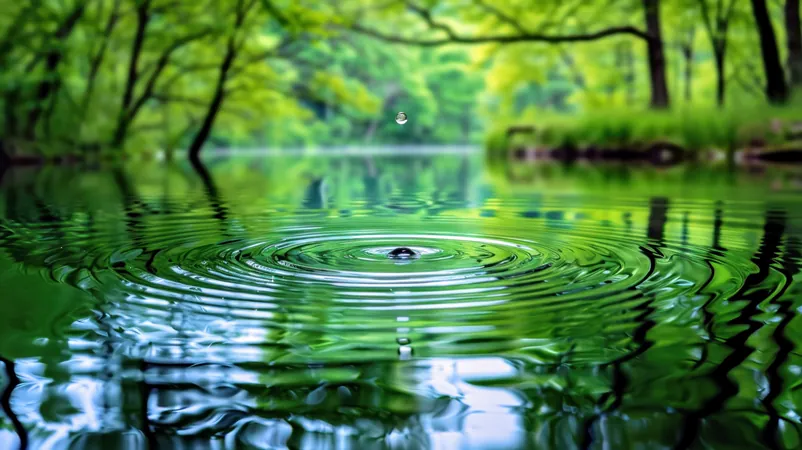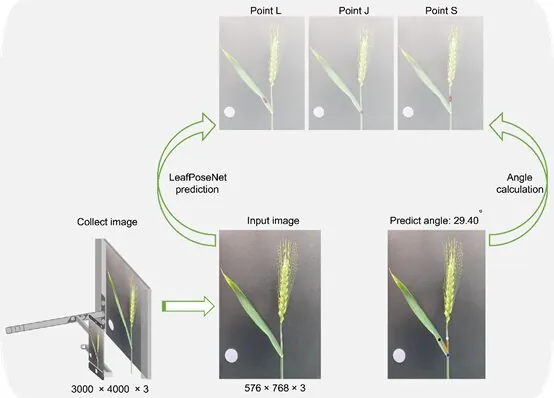
The Surprising Truth: Species Evolve Without Ever Meeting!
2025-08-31
Author: Olivia
Evolution's Hidden Connections
Evolution isn’t just about direct competition or mating; it’s often shaped by subtle environmental ripples that influence species interactions without any direct contact. A groundbreaking new study reveals how one species can affect the evolution of another even while remaining worlds apart.
The Pioneering Study
Led by Shuqing Xu from Johannes Gutenberg University Mainz, researchers delved into the fascinating idea of indirect ecological effects. They explored how one species might influence another through environmental alterations or via a third species, making these impacts often invisible to the naked eye.
Setting Up the Experiment
To uncover these effects, the team created large outdoor mesocosms—huge controlled ponds designed to mimic natural environments. Each pond, containing about 4,000 gallons of water along with plants and tiny crustaceans known as Daphnia, was meticulously monitored.
Some ponds were introduced to aphids that fed on duckweed, while others remained free of aphids, establishing two separate ecosystems that never directly interacted.
Aphids Influence Aquatic Evolution
Remarkably, the study found that aphids, despite residing on floating plants, could significantly influence the genetic evolution of Daphnia living below. This was evidenced by tracking both environmental and genetic changes simultaneously, providing a clear link between cause and effect.
Environmental Changes Cause Genetic Shifts
As aphids consumed duckweed, it diminished and allowed more light into the water, leading to a boom in phytoplankton that Daphnia thrived upon. This led to a staggering 71.5 percent increase in total phosphorus levels and warmer water, creating an environment where Daphnia numbers swelled.
Genomic Fingerprints of Evolution
Whole genome sequencing highlighted that Daphnia from aphid-infested ponds displayed notable genetic divergence compared to their counterparts in control ponds. The study identified over a hundred genetic variants associated with evolutionary changes.
Adaptation Comes at a Cost
Further tests showed that Daphnia adapted to the conditions in aphid ponds benefitted more in similar environments, but they suffered in control ponds—a classic demonstration of the trade-offs that often accompany rapid adaptation.
Rippling Effects Throughout Ecosystems
Changes didn’t stop with Daphnia; the entire ecosystem felt the impact. Shifts in the food quality, particularly the abundance of harmful cyanobacteria, altered nutrient dynamics, creating a cascading effect that benefited the aphids.
Wider Implications of the Study
This research reinforces a long-held suspicion in ecology: it’s not just individual interactions that shape evolution, but entire networks. Previous studies on guppies found similar trends, indicating that adaptations can reshape entire ecosystems, not just the individuals involved.
Conclusion: A Rapid Evolutionary Response
The findings underscore Daphnia’s incredible ability to adapt to rapid environmental changes within just a few generations, revealing that swift evolution is a characteristic feature of freshwater ecosystems. This pioneering study, published in the Proceedings of the National Academy of Sciences, opens the door to understanding the complex interplay of life in our ecosystems.









 Brasil (PT)
Brasil (PT)
 Canada (EN)
Canada (EN)
 Chile (ES)
Chile (ES)
 Česko (CS)
Česko (CS)
 대한민국 (KO)
대한민국 (KO)
 España (ES)
España (ES)
 France (FR)
France (FR)
 Hong Kong (EN)
Hong Kong (EN)
 Italia (IT)
Italia (IT)
 日本 (JA)
日本 (JA)
 Magyarország (HU)
Magyarország (HU)
 Norge (NO)
Norge (NO)
 Polska (PL)
Polska (PL)
 Schweiz (DE)
Schweiz (DE)
 Singapore (EN)
Singapore (EN)
 Sverige (SV)
Sverige (SV)
 Suomi (FI)
Suomi (FI)
 Türkiye (TR)
Türkiye (TR)
 الإمارات العربية المتحدة (AR)
الإمارات العربية المتحدة (AR)